Sid Meier's Civilization 7 Review: Rewriting History In Beautiful, Messy Strokes
Sid Meier's Civilization 7starts, like its predecessors, with a settler on unclaimed land. You found a city, jump into the tech tree, and within a few turns, you've once again discovered the wheel. It's only as the game ticks along that the array of choices becomes truly complex, a sequence of events that serves as a surprisingly apt summation of the series as a whole. Each game has the unenviable task of balancing tradition with innovation, maintaining artifacts from a formula devised in 1991 while, as always, reinventing the wheel.
In some ways, Civ 7's approach feels unusually bold, particularly in its embrace of a new Ages system that cuts up civilizations across three distinct eras. In other ways, many of its ideas feel like logical evolutions of Civ 6's half-measures, and it's all too easy to gloss over how divisive overhauls have always been. While Civ 5 now serves as the inimitable touchstone for many players, its left turn into hex-based design and the absence of key Civ 4 features at launch made it just as contentious as this will likely be.
- Released
- February 11, 2025
- ESRB
- Everyone 10+ // Alcohol and Tobacco Reference, Mild Language, Mild Violence, Suggestive Themes
- Franchise
- Sid Meier's Civilization
- Platform(s)
- PlayStation 5, PlayStation 4, Xbox Series X, Xbox Series S, Xbox One, Nintendo Switch 2, Nintendo Switch, PC
Cutting & Rebuilding Around The Fundamentals
Only The Big Ideas Are Sacred
Civ 7 features plenty of additions, but veterans are more likely to notice everything that's missing in the earliest minutes of a playthrough. Before even entering a game, a diminished array of map types and sizes makes for a poor introduction. In the fledgling stages of an empire, the focus shifts to the absence of familiar faces like workers and Great People. Although making cuts is standard Civ procedure, especially at launch, a few of Civ 7's excisions have been core parts of the franchise's identity from the start.
Newcomers, on the other hand, may not suspect that anything is awry. Most changes feel more like reworked design pillars than cut corners, making steps that Civ 6 wasn't quite ready to make. I miss workers, but I miss what they were in the older games, not the expendable units that Civ 6 grafted onto its district system. Not every missing element has this justification — cities can't currently be renamed, an unpardonable sin that Civ 6 also committed at launch and later fixed — but it applies to the majority.
Picking up the pieces, the core progression of Civ 7 centers on several standard features and a few new ones. Guiding a civilization through the Ages relies on advancing its capacity for production, whether that's literal manufacturing or its ability to generate food, money, technological advancements, and civic developments. Militant conquest is one tool for empire expansion, and war is almost always inevitable, but laying out new districts for prosperous cities and sending out settlers to distant lands can be just as strategically central.
A significant uptick in detail gives urban sprawl a new level of aesthetic satisfaction, enhanced by a successful retreat from Civ 6's heightened cartoon tendencies.
For those like me who prefer to play"wide," Civ 7 has some fresh answers. As is tradition, over-expansion is punished by unhappiness, but civilization-wide unhappiness mostly ticks in as a result of going over a specific settlement cap. The bigger change is the emphasis on towns, as each new settlement beyond the capital will start as a town and revert to one whenever the Age changes. Every settlement can be upgraded to city with a financial investment, but keeping some of them as towns makes it possible to spread out across the map without an obscene uptick in micromanagement.
Civ 7's Ages System Is A Lifeboat For Sinking Civs
Catching Up To The Snowball
The reduction in micromanagement is a guiding element of Civ 7's design, one that ultimately serves its most obvious prerogative — getting people to finish their games. Plenty of changes, both good and bad, go into this goal, but the unavoidable one is the Ages system. Most contentiously, the Ages system forces civilization swaps at the dawn of the Exploration and Modern Ages, whether that's a natural progression like China's Ming dynasty giving way to the Qing or an absurd pivot from the Majapahit to France.
The Ages system has been billed as a better representation of history, but it's a weak argument. While it reflects something that the series has largely ignored, it does so in the reductive manner of pressing a button for a sudden reset, and the ability to lead the Mayans as Ben Franklin certainly doesn't have any grounding. The real trick is that it offers a chance to regroup. If a civilization is on a death march, with civil unrest splintering the kingdom or science lagging behind every competitor, holding on until the next Age could save a campaign from abandonment.
A similar concept appeared in the undeniably Civ-like game Humankind several years ago, but although it failed to win me over there, Civ 7 makes the case more convincingly. I pulled out a victory in my first game only because the leap to the Modern Age bailed me out of some key mistakes, and even more dire straits could potentially be escaped by embracing "Dark Age" options, which let a faltering civilization go for broke. It's also nice to see civilization perks that lean into era-specific details, like the boost Meiji Japan receives from overbuilding.
The Ages System Could Still Use Some Tweaks
Subtlety Is In Short Supply
At the same time, Civ 7's total commitment to the idea may tip slightly too far into the hard reset. While an Age transition offers a cool opportunity to escape a dead-end war, I found it excessively silly when a war that Ashoka declared on me in the final turn of the Exploration Age immediately evaporated. Although it didn't take long to wrap my head around the motivations for changes like my cities suddenly reverting to towns, there's still a sense that each age is a big button push rather than a natural turning point.
Each Age also offers its own Legacy Paths, which are challenges themed around cultural, economic, military, and scientific progression. Some of these fit naturally into the gameplay loop, while others promote relatively specific methods of advancement. It's theoretically possible to win games while ignoring Legacy Paths in the Antiquity and Exploration Ages, but they define Modern Age victories.
Civ typically struggles to find a clear thesis for the Culture Victory, and unsurprisingly, it's the one that I find the most frustrating here. Completing the Legacy Path hinges on racing around the world to dig up artifacts left by past events, a neat concept that nonetheless feels like a particularly arbitrary win condition. The chase is fun, but it's not the only way to recover artifacts, and the option to do so through overbuilding is weirdly appended and poorly explained.
The Good, The Bad, & The Ugly Of Progression
Let Victory Speak For Itself
In a broader view, Legacy Paths represent Civ 7's tendency toward explicit, front-and-center game mechanics and progression paths, which is where I find myself the most deeply conflicted. Civ 5 traded some of the franchise's more simulationist elements for modern board game sensibilities, and its successors have doubled down. The consistent markers of progress found in Legacy Paths aren't conceptually far removed from elements like boosting tech tree progress with Eurekas in Civ 6, but Civ 7 feels like a crossing of the Rubicon overall.
Civ 7 also completes the evolution toward rigid hex representations of city borders, which outline districts more clearly but spark less imagination.
The supply of more specific tasks to focus on throughout the game should help new players stay on track, but they deal another blow to the sense of being left alone in a sandbox of history. The same goes for the reduction in map variants, a result of tying new features into a Distant Lands mechanic that props up the Exploration Age. Some elements, like the unusually clear conveyance of what each upgrade will contribute, provide obvious benefits even as they set the train onto a more linear track. However grand its ideas about Ages may be, Civ 7 has effectively narrowed its vision.
The progression elements that I outright dislike, at least in their current implementation, are the meta ones. Winning the space race in a Civ game is a titanic moment that rests on the unbelievable achievements of human history to convey a sense of accomplishment. Bouncing to a screen that levels up Confucius afterward is not. I'm not necessarily opposed to some of the concepts at play, but the overall effect is cheap, and it grabs its ideas from games that are beneath Civ's standards of innovation.
Refining Civ 6 With New Opportunities & Pitfalls
Progress Is Never Easy
As a sequel to Civ 6, Civ 7 ultimately makes perfect sense. It streamlines smartly, cutting baggage and leaning into the elements that most compulsively drive the game forward. Certain decisions are downright inspired, like navigable rivers that make naval units more fun when little is happening at sea. Army Commanders effectively soup up Great Generals into a solution, at long last, for marrying the best elements of old-school unit stacking and the more tactical modern approach to combat. Independent Powers are a similarly elegant fusion of barbarians and city-states, and I'm happy to see that the team isn't afraid to rethink series staples.
As the next installment in a legacy that spans decades, Civ 7 is in a more complicated position. Some of its mechanical transparency leaves me cold, like diplomacy that only feels like a real exchange between leaders when war and peace are declared. The emphasis on new, relatively rigid systems might pose a risk to endless replayabililty, especially if the potential for interesting pivots when swapping civilizations eventually grows old. I haven't grown tired of anything so far, for whatever it's worth.
Civ games are never quite fully realized at release, but even more than usual, I'm interested in Civ 7 as a platform for post-launch refinement and expansions that add fresh elements of complexity. Although the need for a few more civs across the splintered timeline opens up a messy discussion about monetization, the base game feels mechanically complete. Rather than fleshing out a slightly-too-empty shell, a long road that Civ 5 got away with thanks to its strong essentials, Civ 7's future support feels like an opportunity to loosen the parameters that ensured the basic success of the Ages system.
Final Thoughts & Review Score
Screen Rant Gives Sid Meier's Civilization 7 9/10
By my third game of Civ 7, I had mentally codified most of my frustrations and concerns. By my fourth, I had stopped thinking about them. I don't know what Civ 7 represents for the future of the series, and if I obsessed over envisioning the games beyond, I'd probably end up mourning what the series once was and how Civ 4 once defined it for me. As easy as it is to list out complaints, however, the game that exists beneath them all is still somewhere near the pinnacle of the strategy genre, and the revisions accomplish their primary goals with relative ease.
Civ has been on course to becoming a Ship of Theseus for a while, and protecting a highly specific idea of what Sid Meier's name should mean would have resulted in the rejection of several games before now. Setting aside the weight of accumulated systems, expectations, and human history itself, there might only be one feature that defines the series. A Civ game must, above all else, make you think "one more turn," for hundreds of turns and hours on end.
Midway through my fourth game of Civ 7, I forced myself to go to bed to squeeze in a minimally appropriate amount of sleep before work. When I woke up in the morning, my first thought was that I wanted to keep building my empire, and that's when I finally knew how I felt about the game. Sid Meier's Civilization 7is streamlined, strange, and bound to be divisive. It's also, undeniably, Sid Meier's Civilization. As ever, the series stands apart.
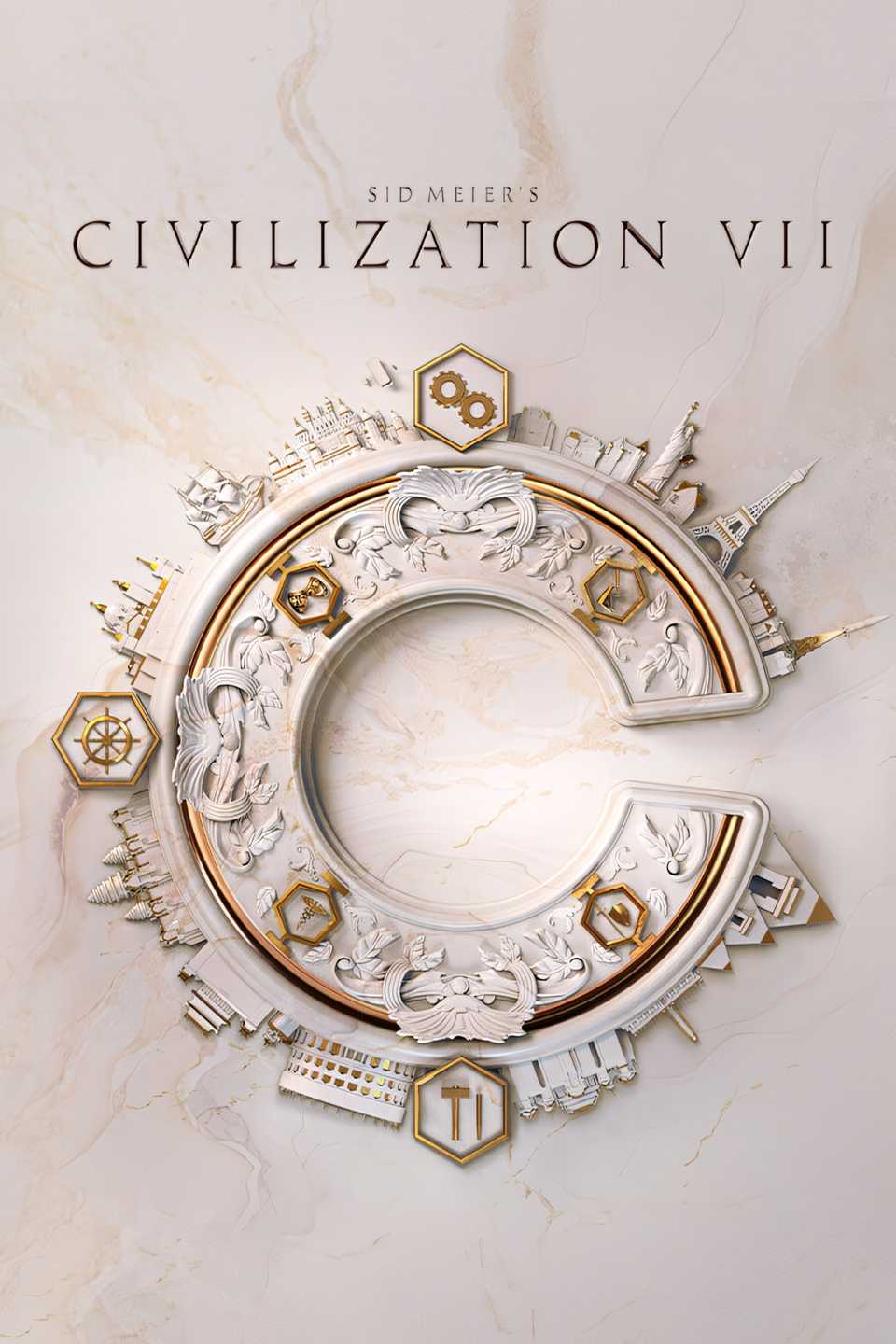
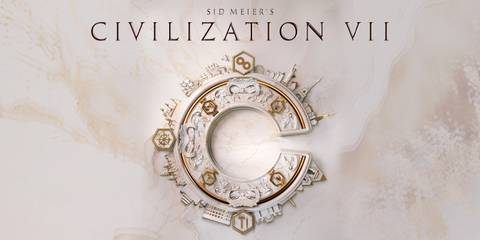
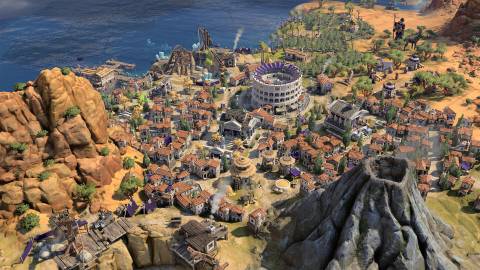
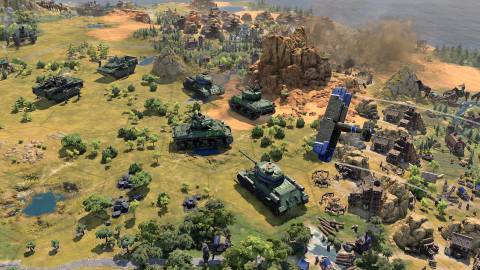
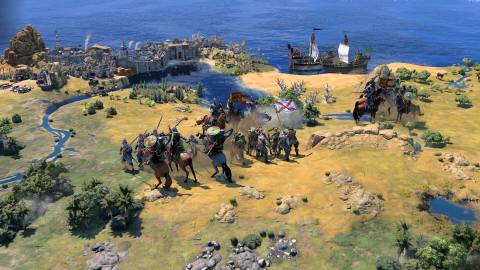
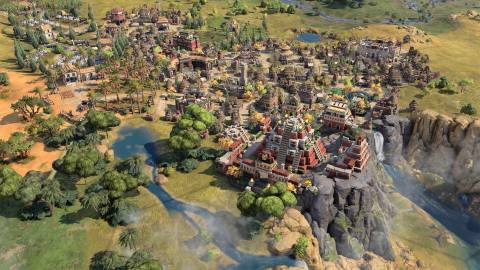
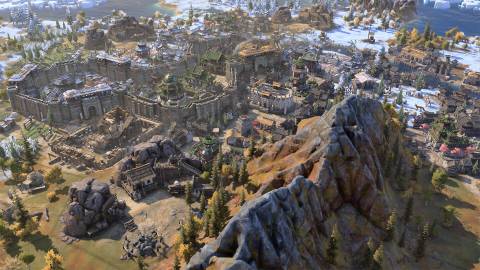
Sid Meier's Civilization VII
Reviewed on PC.
 OpenCritic Reviews
OpenCritic Reviews- Released
- February 11, 2025
- ESRB
- Everyone 10+ // Alcohol and Tobacco Reference, Mild Language, Mild Violence, Suggestive Themes
- Developer(s)
- Firaxis Games
- Publisher(s)
- 2K
Sid Meier's Civilization VII empowers players to guide their empires through three distinct Ages—Antiquity, Exploration, and Modern—each offering unique civilizations and challenges. For the first time, leaders and civilizations can be mixed and matched, allowing unprecedented strategic combinations.
- Effectively maintains Civilization's addicting gameplay.
- Cuts down micromanagement.
- Ages system stops outcomes from feeling inevitable.
- New mechanics are smart evolutions.
- Some elements of progression feel limiting.
- Ages system could use further iteration.
Screen Rant was provided with a PC download code for the purpose of this review.
Source: Sid Meier's Civilization/YouTube










Your comment has not been saved